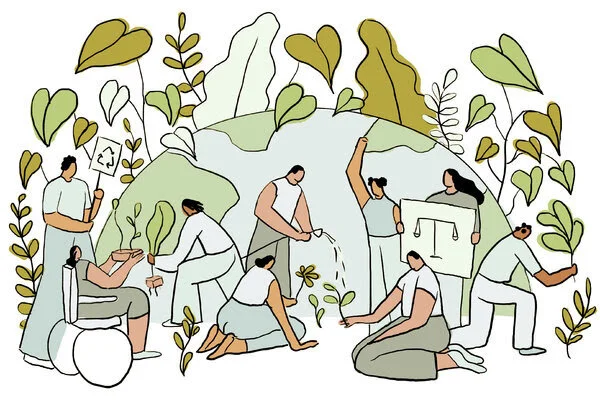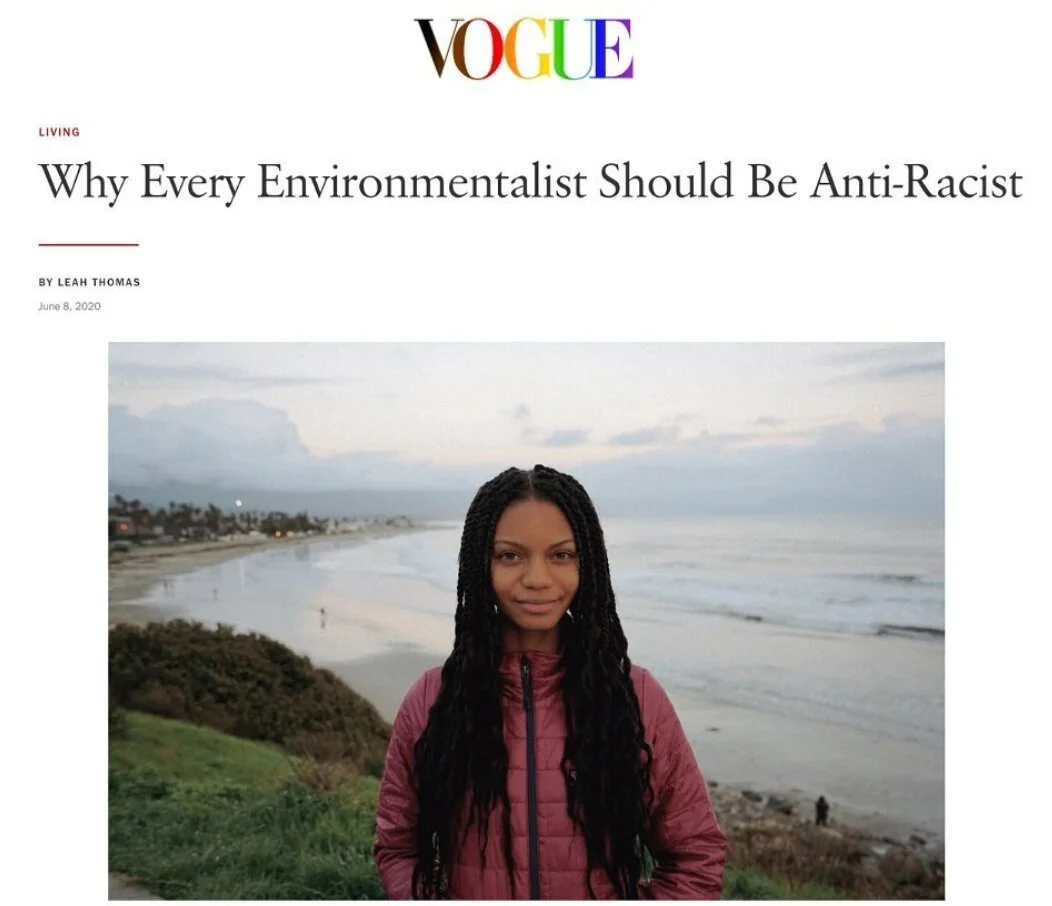Racial Justice is Climate Justice
Artwork by Alexandra Bowman
As an environmentalist, the fight for racial justice is the same fight as climate justice. The definition of sustainability is usually described as the three P’s: People, Planet, and Profit. Imagine a three-legged stool, if one leg is too long or too short, the stool falls over and it’s not sustainable. For our communities, country, and globe to be sustainable, all three elements need to be equally balanced. Unfortunately, in the US, we focus mostly on the economic growth of something, and disregard its impact on the planet or the people affected by the decision *cough* FOSSIL FUELS *cough* And usually what people think of when they think of “sustainability” is the sole focus on the environment. But in order for something to TRULY be sustainable, all three elements must be not only considered, but equally prioritized.
So the fight for racial justice isn’t INSTEAD of climate justice, it’s hand-in-hand. The recent edition of the The NY Times Climate Fwd newsletter (subscribe here) interviewed Sam Grant, the executive director of MN350.org, the Minnesota affiliate of the international climate activist group 350.org. He said,
“I believe part of our challenge as an organization focused on the climate crisis is to honor what’s primary for people and through dialogue and through relationships, help people see the connection between that issue and the broader climate crisis,” he said. “So it’s not choosing this or that. Or this, then that. It’s this and that.”
As I’m still learning about all of this, I’ll let the pros explain:
Dr. Ayana Elizabeth Johnson is a marine biologist, policy advisor, and Brooklyn native. She is founder and CEO of the consultancy Ocean Collectiv, founder of the non-profit think tank Urban Ocean Lab. Her recent article in The Washington Post reminds us that black Americans are disproportionately more likely than whites to be concerned about — and affected by — the climate crisis, and how racism derails our efforts to save the planet.
One of my favorite environmentalists is Leah Thomas, and her recent article in Vogue breaks down why all environmentalists don’t only need to be not racist, but antiracist.
I have compiled a list of petitions, donations, films, books, TedTalks, podcasts, and articles to use as you continue to educate yourself, engage in the conversation, and fight this good fight. Full resource list here:
Chances are, if you’re invested in sustainability or environmentalism, you are actively reading, listening and watching material regarding the topic. You’ve probably signed petitions against drilling pipelines in Indigenous territory, and you’ve most likely attended some sort of community tree-planting or waterway cleanup activity. You don’t impulsively buy anything, because you always research the company and their mission beforehand, their supply chain of how their product was made, by who, and under what conditions. You speak up for the planet when people tell you that climate change isn’t real, you’ve probably been to a Fridays for Future or Extinction Rebellion climate strike, and you have made non-negotiable commitments in your life to reduce your carbon footprint, to create a better planet for all.
Let’s take the SAME approach with our fight for racial justice, and break the deep-rooted systemic racism in our country + our world. Start with the conversations where you are, in your community and in your home. Speak up when you hear others “making jokes” or trying to dismiss racial language as acceptable. Donate to organizations who are doing the active ground work, and plug into a local group yourself. Do your homework before you purchase something, see what the company is authentically doing to have an inclusive workforce, and use their leverage to interrupt racist cycles. Support BIPOC owned businesses. Sign petitions that raise the awareness and voices of the racial injustices across the globe, and last but most importantly… VOTE VOTE VOTE, baby.


